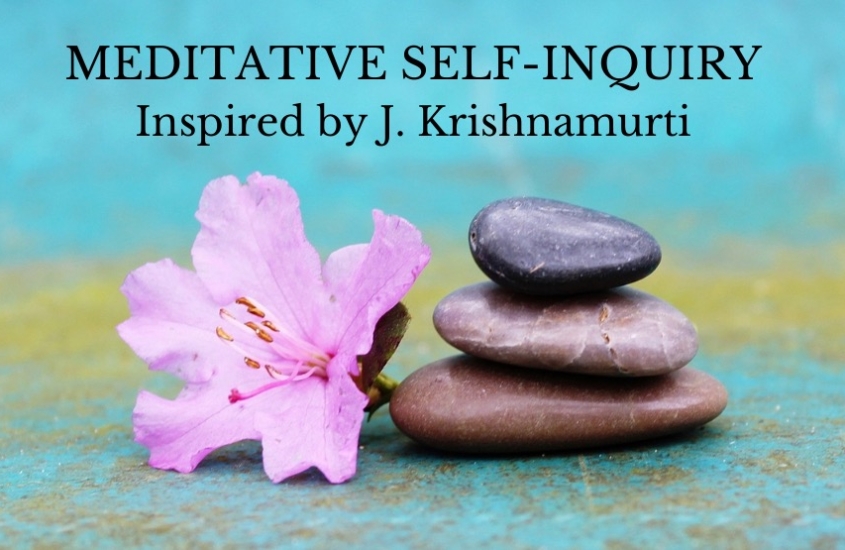Meditative Self-Inquiry April 10, 2022
Meditative Self-Inquiry
With Mukesh Gupta, April 10, 2022
Zoom online
In this session of Meditative Self-Inquiry Mukesh chose to focus on the question, “Can there be an end to fear and sorrow?” Seventeen people, staff included, attended the online presentation and discussion which began with a talk by Mukesh and then opened up for group questions and dialogue. Right at the beginning Mukesh posed another question which he felt to be crucial: “Am I present here and now?” Without answering that question Mukesh then gave a talk of about forty-five minutes to an hour about the nature of fear and sorrow, both being realities that everyone goes through in their lives. As long as we are caught in fear and sorrow, he said, we cannot flower, but when we understand deeply the roots of them then the issues and associated problems dissolve.
Fear arises when we are not facing the reality of our lives, when we are avoiding it. It is the shadow of desire, desire to dominate and have power. It exists when our self-centredness is not seen and we try to find security in thought constructs. Can it be seen that there is no security in identification with thought and in being driven by the egoic mind. Listening to Krishnamurti and other teachers the truth is seen. We must also listen to ourselves. Ego mind cannot heal itself but it can be looked at from the space of awareness and pure observation without naming what is seen and without trying to get rid of it. The “ego” can arise and dissolve naturally. It will be seen that the “observer” is the “observed”: both are creations of thought. The “I” is fear and sorrow. Our looking must be complete, a watching of what arises as thought and sensation. This watching awakens a different quality of intelligence which manifests compassion and passion for truth.
Following the talk we sat quietly for a short time then entered into dialogue. Questions and responses emerged concerning the need and possibility of peace, which must begin with ourselves. Any realisation of peace is significant. Can we also go to the very root of conflict and cut it? Can we feel responsible for the world and not feel guilty at the same time? Dialogue helps us to see the limits and falseness of our ideas and to realise the power of love and compassion, the depths of life.
Problems seem endless. What are we to do? Can we stay with the seeing of the “me” in action? Can we face the loneliness of the “me”? We must approach complex problems in a simple way. We need energy for creation, not for reaction. The participants seemed moved to explore such questions and to bring such inquiry into their daily lives.



